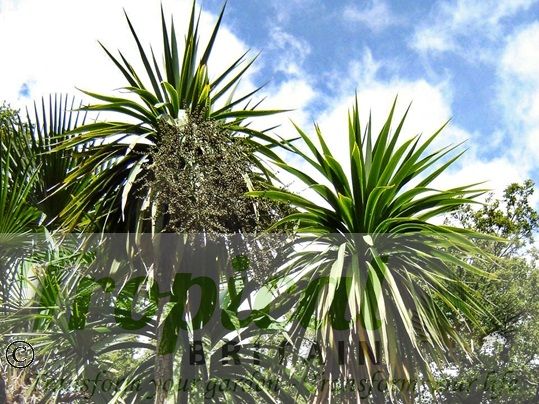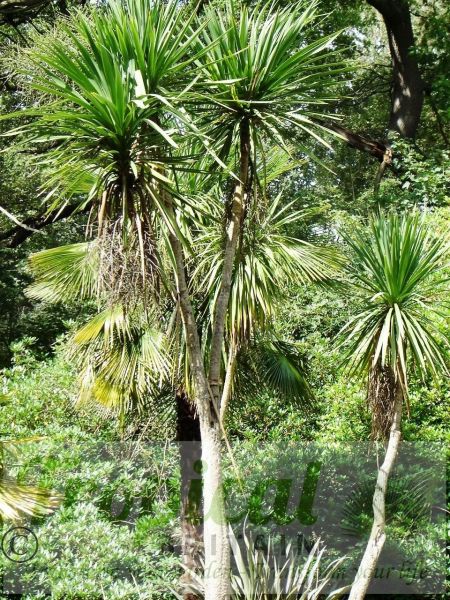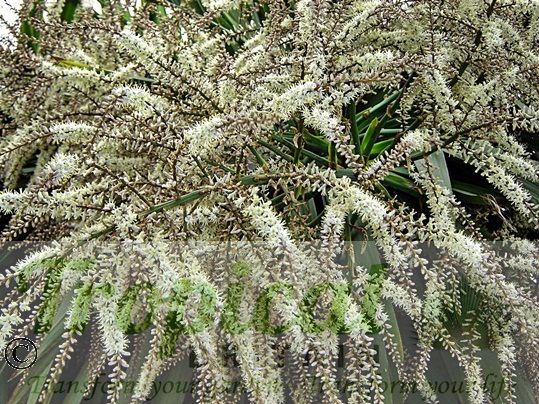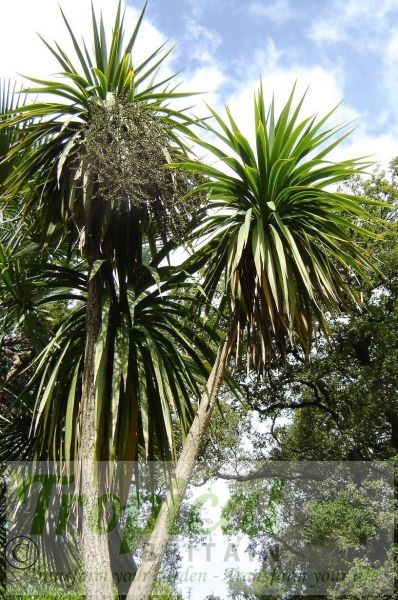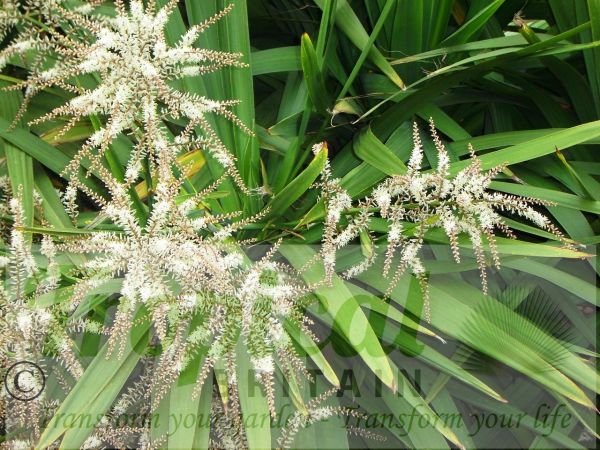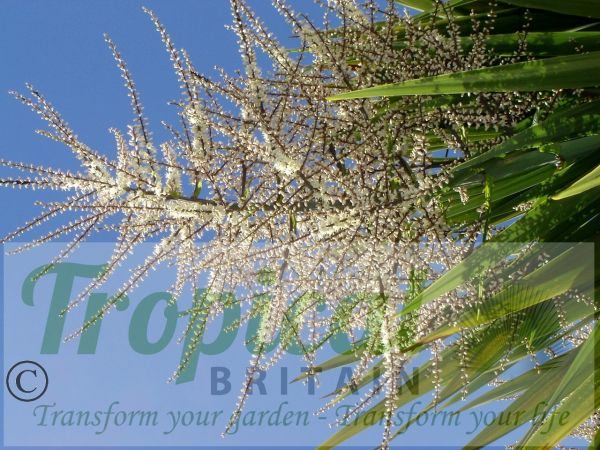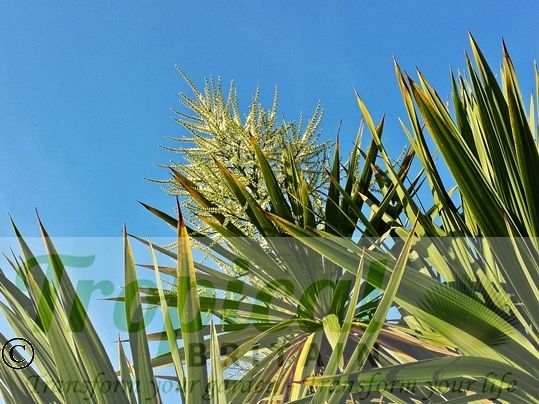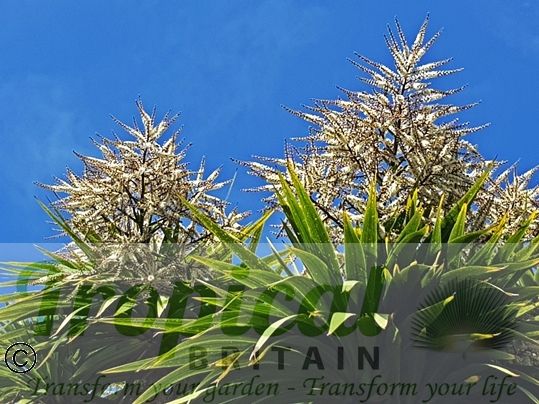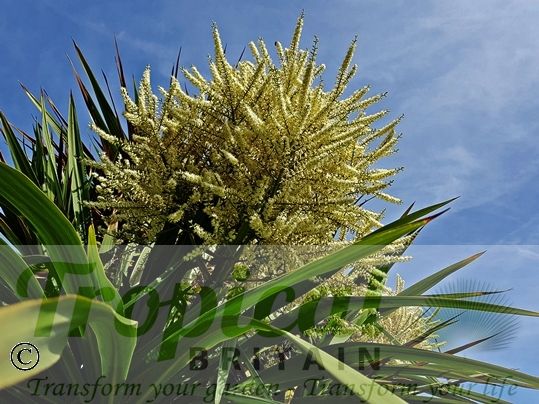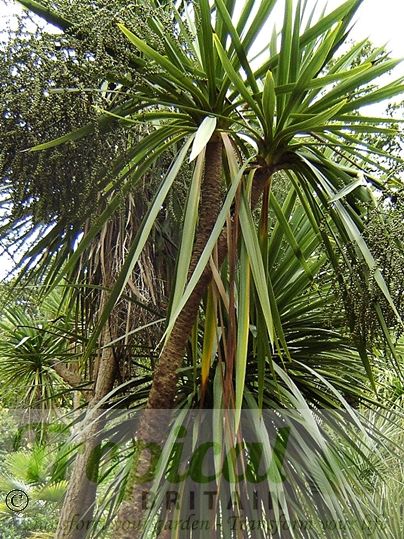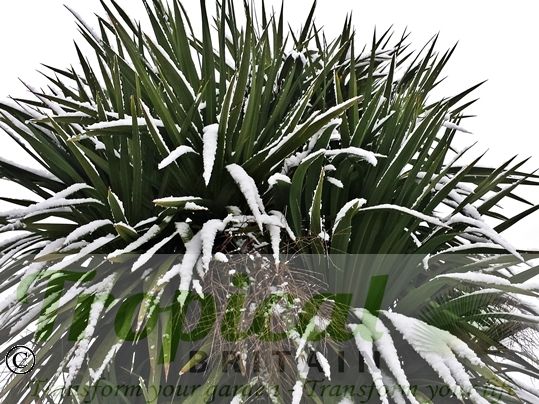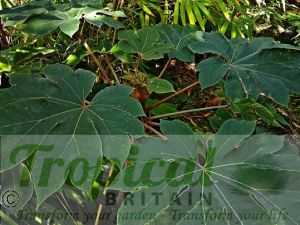Cordyline australis
Native to New Zealand - where it is generally ubiquitous but has in recent years been experiencing something of a decline in the wild - Cordyline australis is one of the easiest and fastest-growing exotic trees you could possibly cultivate. Very old New Zealand specimens can reach up to 60 feet or more but 20-30 feet is more usual in cultivation. Not really a palm tree at all, its taxonomical wanderings through the various plant families has continued for many years and at various times has been classified amongst the Lily and Agave families.
The growing heart of Cordyline australis was eaten by the Maori people and - unlike a true palm tree - Cordylines are not killed by losing this growing stem and will soon grow another. Beyond the harvesting of wild plants, the Maori had several levels of ti kouka domestication. In the eastern South Island in particular, Cordyline australis, ti kouka, was coppiced on a 3 to 4 year rotation and the harvested stems steamed for 24 hours in large umu ti (earth ovens dedicated to cooking ti) to produce the sweetener kauru. Steaming converted the carbohydrate fructan in the stems to very sweet fructose. Material processed in this way was stored dry until the time came to add it to fern root and other foods to improve their palatability. Early European settlers to New Zealand learnt from this bushcraft and it thus acquired its common name of Cabbage Tree which is how it is usually referred to in that country. Cordyline australis has a very hard trunk or multiple trunks, usually branching more after each successive yearly flowering. The outside bark of this trunk is virtually indestructible and hollow specimens were used by the early settlers as chimneys.
The flowers are small, fragrant and creamy-white and held in large racemes which hang down from the foliage not completely unlike a palm tree. But it is primarily the combination of its tall slender trunk and the explosions of strap-like foliage at the tops of the trunk that give it its palm-like image. These spiky sword-like leaves can be 3-4 feet in length and appear dramatically from the ends of the multiple branches. Very hardy throughout the cold temperate region it has been established in Great Britain now for many years and is one of the first plants to grow for the exotic gardener as it quickly establishes itself and provides a bold dramatic effect far faster than any palm is capable of. Cordyline australis is frost hardy and well suited to coastal areas. It is drought tolerant and prefers a fertile but dryish well-drained soil in full sun to partial shade. Some Cordylines in exposed or more Northerly locations were killed off in the very harsh winters of 2011 but if in doubt you can tie up the leaves in a bundle and wrap them for protection. This is usually not necessary for most British gardens. It is often grown in containers but it seems a shame to transform such a wild-spirited plant into a miniature. If you do grow it in a container the pot should always be on the large side if a reasonable sized specimen is required.
Absolutely essential exotica. A stunning and indispensable addition to any exotic garden.
These are large and tall plants for their pot size...Bargain!
Additional Information
| Order | Asparagales |
|---|---|
| Family | Asparagaceae |
| Sub-Family | Lomandroideae |
| Synonyms | Charlwoodia australis, Cordyline australis var. atropurpurea, Cordyline australis var. aurea-striata, Cordyline australis var. lineata, Cordyline australis var. veitchii, Cordyline calocoma, Cordyline calocoma f. lentiginosa, Cordyline calocoma f. lineata, Cordyline calocoma f. nutans, Cordyline calocoma f. veitchii, Cordyline forsteri, Cordyline lentiginosa, Cordyline sturmii, Cordyline superbiens, Cordyline veitchii, Dracaena australis, Dracaenopsis australis, Dracaenopsis calocoma, Terminalis australis |
| Geographical Origin | New Zealand |
| Cultivation | Warm sunny position. Water well in summer. Enjoys a rich soil but is tolerant of less. |
| Eventual Height | 10 m would be unusual in the UK although in NZ it grows much taller |
| Eventual Spread | Crowns to about 4 m in the UK |
| Hardiness | Usually hardy but plants, particularly younger plants, may need some protection during severe frost |

Free DELIVERY
ON ALL ORDERS OVER £99THIS OFFER IS VALID ON ALL OUR STORE ITEMS.

